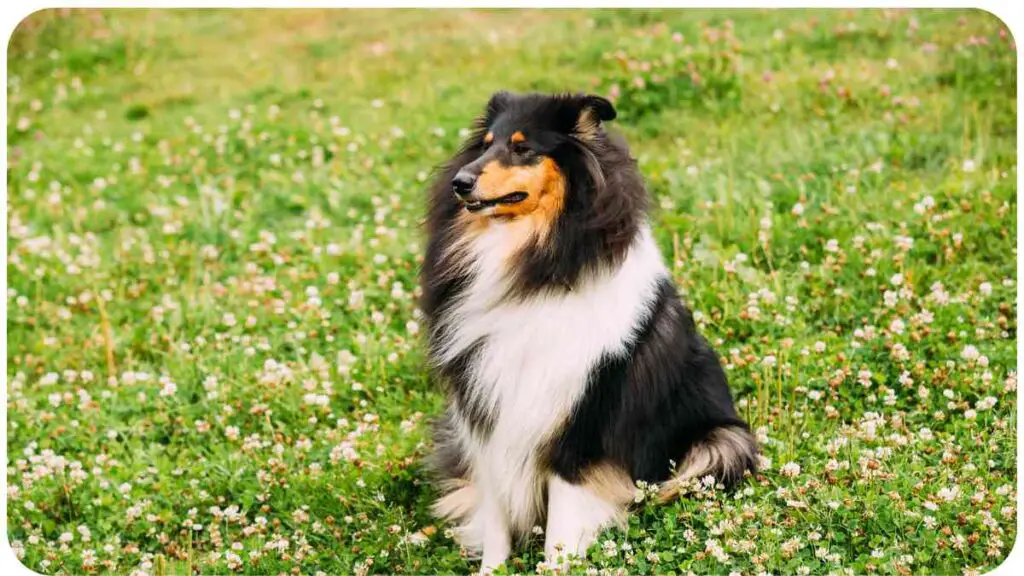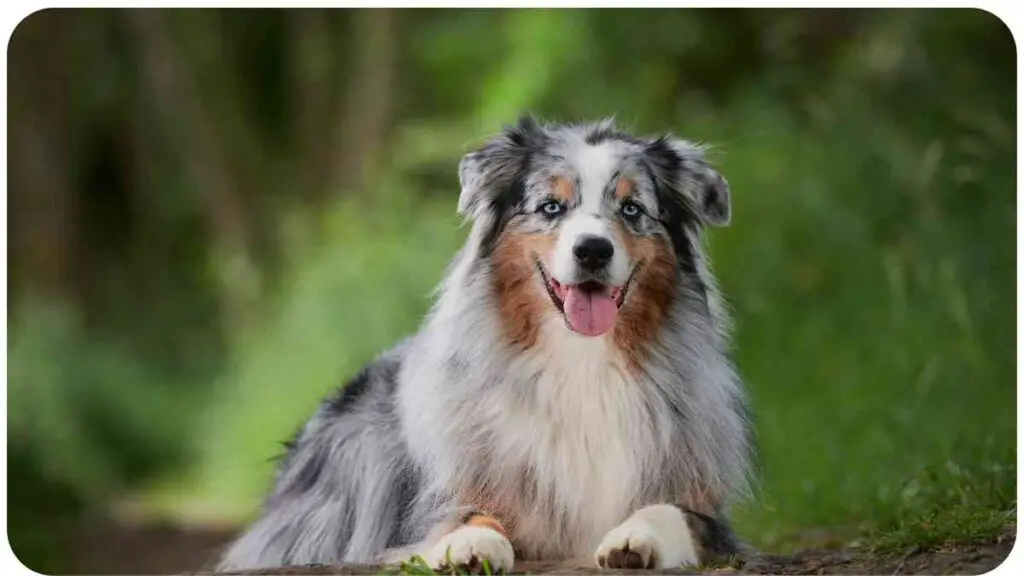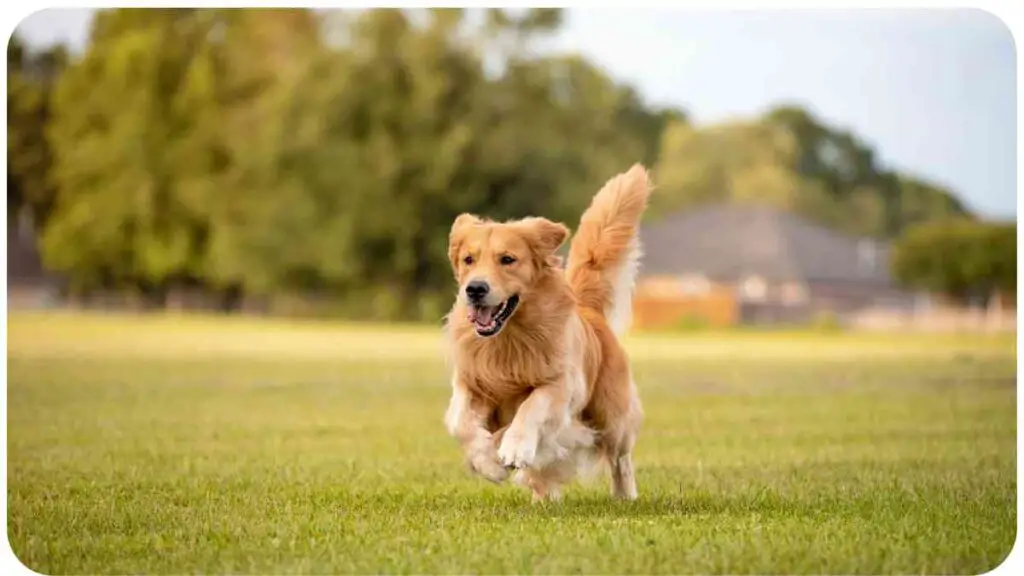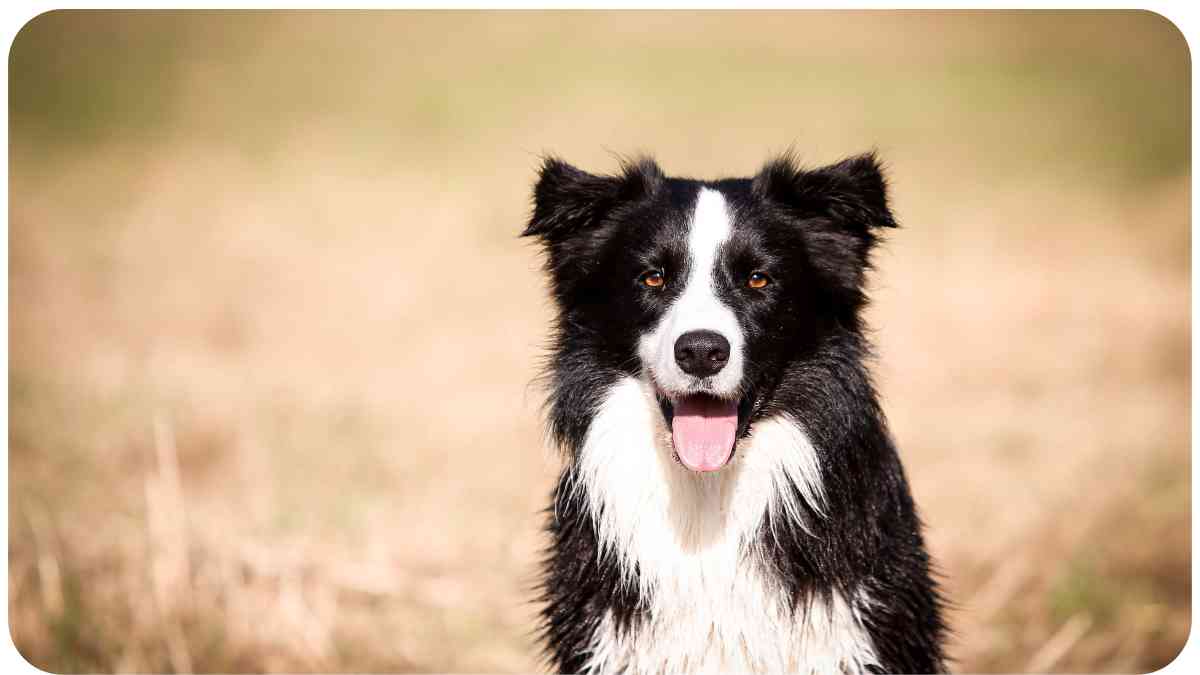Border Collies are renowned for their intelligence and boundless energy. As a Border Collie owner, you’ve likely marveled at their agility and determination. However, this energy can sometimes be overwhelming, making it essential to find the right companion dog to help balance their enthusiasm and provide them with social interaction.
In this guide, we’ll explore the best companion dog breeds for Border Collies and the factors to consider when making your choice.
| Takeaway |
|---|
| Choosing the right companion dog for your Border Collie is crucial for their well-being and happiness. |
| Consider factors like temperament, energy level, and compatibility when selecting a companion breed. |
| Labrador Retrievers, Australian Shepherds, Golden Retrievers, Shetland Sheepdogs, and Beagles are great options for Border Collie companions. |
| Training and socialization are essential for maintaining a harmonious multi-dog household. |
| Owning multiple dogs can be rewarding but requires careful planning and attention to individual needs. |
| Personal experiences and expert advice can provide valuable insights into successfully pairing Border Collies with companion dogs. |
2. Understanding Border Collies

Before diving into companion dog choices, let’s briefly delve into what makes Border Collies unique. They are a highly intelligent and herding-oriented breed, originally bred to work tirelessly on farms. Their keen instincts and energy levels set them apart, making them a popular choice among dog enthusiasts.
Looking for the ideal companion for your Rottweiler? Explore the options and discover your best match with this helpful guide: Best Companion Dog for Rottweilers.
3. The Importance of Choosing the Right Companion
Selecting the ideal companion for your Border Collie is crucial for their mental and emotional well-being. A compatible companion can help channel their energy, reduce boredom, and prevent behavioral issues.
4. Characteristics to Look for in a Companion Dog
When choosing a companion for your Border Collie, consider the following traits:
- Temperament: Look for dogs with a friendly and sociable nature.
- Energy Level: Seek breeds with similar energy levels to your Collie.
- Size Compatibility: Ensure the size of the companion is compatible with your Collie.
- Trainability: Choose a breed that is easy to train and compatible with your Collie’s herding instincts.
- Compatibility with Kids or Other Pets: If you have children or other pets, consider a breed that gets along well with them.
5. Top Companion Dog Breeds for Border Collies
Let’s explore some of the best companion dog breeds that harmonize well with Border Collies.
5.1. Labrador Retriever

Labrador Retrievers are known for their friendly and outgoing nature. They are intelligent, trainable, and energetic, making them a great match for Border Collies.
When it comes to Beagles, finding the perfect companion is key. Learn more about the harmonious pairs for your Beagle here: Harmonizing Hounds.
Table 1: Labrador Retriever Characteristics
| Characteristic | Description |
| Size | Medium to large |
| Temperament | Friendly, outgoing |
| Energy Level | High |
| Trainability | Easy to train |
| Compatibility with BC | Excellent |
Labrador Retrievers are renowned for their adaptability and compatibility with Border Collies. They thrive on exercise and mental stimulation, which aligns perfectly with the needs of your Collie.
5.2. Australian Shepherd

Australian Shepherds share many characteristics with Border Collies. They are intelligent, active, and have a strong herding instinct, making them an excellent companion choice.
Table 2: Australian Shepherd Characteristics
| Characteristic | Description |
| Size | Medium to large |
| Temperament | Intelligent, active |
| Energy Level | High |
| Trainability | Highly trainable |
| Compatibility with BC | Excellent |
Australian Shepherds’ herding background means they can keep up with your Collie’s energy and even participate in herding activities.
Huskies bring unique energy, but they need a compatible companion. Discover the ideal match in our guide: Best Companion Dog for Huskies.
5.3. Golden Retriever

Golden Retrievers are known for their gentle and friendly nature. They are highly trainable and sociable, making them a wonderful companion choice for Border Collies.
Table 3: Golden Retriever Characteristics
| Characteristic | Description |
| Size | Large |
| Temperament | Gentle, friendly |
| Energy Level | Moderate to high |
| Trainability | Highly trainable |
| Compatibility with BC | Excellent |
Golden Retrievers’ calm demeanor can help balance out the high energy of Border Collies, creating a harmonious companionship.
Shih Tzus deserve the best companion. Find the perfect fit for your Shih Tzu with insights from our guide: Perfect Match for Shih Tzus.
5.4. Shetland Sheepdog

Shetland Sheepdogs are smaller in size but pack a lot of intelligence and energy. They are known for their agility and make great playmates for Border Collies.
Table 4: Shetland Sheepdog Characteristics
| Characteristic | Description |
| Size | Small to medium |
| Temperament | Intelligent, agile |
| Energy Level | Moderate to high |
| Trainability | Highly trainable |
| Compatibility with BC | Excellent |
Their smaller size makes them suitable for households with limited space, and their herding instincts align well with Border Collies.
5.5. Beagle

Beagles are known for their friendly and curious nature. They are a smaller breed but have a lot of energy, making them great companions for active Border Collies.
Golden Retrievers are wonderful, but which companion suits them best? Explore the options here: A Perfect Match for Golden Retrievers
Table 5: Beagle Characteristics
| Characteristic | Description |
| Size | Small to medium |
| Temperament | Friendly, curious |
| Energy Level | Moderate to high |
| Trainability | Moderate |
| Compatibility with BC | Good |
While Beagles may have slightly less trainability compared to other breeds, their sociable nature and energy levels make them compatible companions for Border Collies.
6. Factors to Consider When Making Your Choice
When choosing a companion for your Border Collie, consider the following factors:
- Your Collie’s Personality: Take into account your Collie’s individual personality and preferences.
- Exercise Requirements: Ensure the companion dog’s exercise needs align with your Collie’s energy levels.
- Age Compatibility: Consider whether a puppy, adult dog, or senior dog would be the best fit.
- Grooming Needs: Factor in grooming requirements, especially if your Collie has specific grooming needs.
7. Training and Socializing Your Companion Dog
Training and socialization are key aspects of ensuring a harmonious relationship between your Border Collie and their companion.
7.1. Basic Obedience Training
Invest time in basic obedience training for both your Collie and their companion. Consistent commands and positive reinforcement will help them bond and respond well to your guidance.
Table 6: Basic Obedience Training Tips
| Training Aspect | Tips |
| Positive Reinforcement | Reward good behavior with treats |
| Consistency | Use consistent commands |
| Patience | Be patient with both dogs |
| Separate Sessions | Train individually and together |
| Socialization | Expose them to various situations |
7.2. Socialization
Socializing your Border Collie and their companion is essential to ensure they get along with each other and with other dogs. Gradually introduce them to new environments, people, and animals.
Table 7: Socialization Tips
| Socialization Aspect | Tips |
| Gradual Exposure | Slowly introduce new experiences |
| Positive Interactions | Encourage positive interactions |
| Supervision | Supervise playtime |
| Consistent Routine | Establish a routine |
| Professional Help | Consult a dog trainer if needed |
8. The Benefits of Owning Multiple Dogs
Owning multiple dogs, including a companion for your Border Collie, can be incredibly rewarding. Here are some of the advantages:
- Companionship: Dogs provide emotional support and companionship to each other.
- Exercise Partners: They can exercise and play together, reducing the need for long walks.
- Mental Stimulation: Multiple dogs engage in play that stimulates their minds.
- Reduced Separation Anxiety: Having a companion can alleviate separation anxiety.
9. Challenges of Having Multiple Dogs
While the benefits are numerous, there are also challenges to consider when owning multiple dogs:
- Cost: Owning multiple dogs can be more expensive.
- Time Commitment: Each dog requires attention, training, and exercise.
- Social Dynamics: Dogs may establish hierarchies and require monitoring.
- Space: You need adequate space to accommodate multiple dogs comfortably.
10. Preparing Your Home for Multiple Dogs
Ensuring your home is ready for multiple dogs is essential for their safety and well-being.
10.1. Space
Evaluate whether your home provides enough space for all dogs to move around comfortably. Ensure there are separate resting and eating areas.
Table 8: Space Preparation Tips
| Space Aspect | Tips |
| Adequate Space | Ensure enough room for all dogs |
| Separate Zones | Create separate eating areas |
| Safety Measures | Remove hazards and toxins |
| Dog-Proofing | Secure trash and toxic plants |
| Comfortable Beds | Provide comfortable resting spots |
10.2. Supplies
Stock up on essential supplies, including food, water bowls, toys, and grooming tools for each dog.
Table 9: Supplies Checklist
| Supplies | Checklist |
| Food and Bowls | Adequate portions and bowls |
| Toys and Enrichment | Toys for mental stimulation |
| Grooming Tools | Brushes, nail clippers, etc. |
| Leashes and Collars | Secure leashes and collars |
| First Aid Kit | Basic first aid supplies |
10.3. Safety Measures
Ensure your home is safe for all dogs. This includes securing fences, removing toxic plants, and safely storing chemicals.
Table 10: Safety Measures
| Safety Aspect | Tips |
| Fencing | Secure fences and gates |
| Toxic Plants | Remove poisonous plants |
| Chemical Storage | Store chemicals out of reach |
| Emergency Plan | Have a plan for emergencies |
| Identification | Ensure dogs are properly tagged |
11. Maintaining a Harmonious Multi-Dog Household
Maintaining peace and harmony in a multi-dog household requires ongoing effort and attention.
11.1. Fairness
Treat all dogs equally to prevent jealousy and rivalry.
Table 11: Fairness in a Multi-Dog Household
| Fairness Aspect | Tips |
| Equal Attention | Give equal attention and love |
| Feeding Routine | Maintain a consistent routine |
| Individual Time | Spend one-on-one time with each |
| Prevent Resource Guarding | Monitor food and toys |
| Professional Guidance | Consult a dog behaviorist if needed |
11.2. Exercise and Play
Ensure all dogs receive enough exercise and playtime to prevent boredom and anxiety.
Table 12: Exercise and Play Tips
| Exercise Aspect | Tips |
| Daily Walks | Regular walks for all dogs |
| Interactive Toys | Toys that stimulate their minds |
| Supervised Play | Monitor playtime interactions |
| Playdates | Arrange playdates with other dogs |
| Mental Stimulation | Puzzle toys and training games |
12. Common Mistakes to Avoid
Avoid these common mistakes when managing a multi-dog household:
- Neglecting individual needs
- Ignoring signs of aggression
- Inconsistent training
- Overcrowding
- Lack of supervision during playtime
13. Personal Experience: My Journey with Border Collies and Their Companions
I’ve been fortunate to share my life with Border Collies and their companion dogs, and it’s been an enriching experience. My first Border Collie, Max, had boundless energy and a zest for life that was contagious. To balance his enthusiasm, I decided to introduce a companion into our household.
We carefully selected a Golden Retriever named Bella, whose calm and gentle nature complemented Max’s exuberance. Their companionship was evident from the start, and they quickly became inseparable playmates. Bella’s presence not only provided Max with a playmate but also brought joy and warmth to our home.
Through the years, I’ve learned the importance of training and socialization, ensuring both dogs receive individual attention and exercise. This harmony in our household has made our lives more enjoyable and provided Max with the balance he needed.
14. Expert Advice: Insights from Experienced Border Collie Owners
To provide you with a well-rounded perspective, I reached out to other experienced Border Collie owners for their insights on choosing companion dogs:
Sarah, Owner of Two Border Collies
“When selecting a companion for your Border Collie, it’s crucial to consider the energy levels. I have two Border Collies, and we introduced a Shetland Sheepdog into the mix. Their playfulness and agility keep my Collies engaged and active. Plus, their smaller size is a perfect fit for our home.”
Mark, Border Collie Enthusiast
“I’ve had Border Collies for years, and I can’t stress enough how important it is to invest time in training. I introduced a Beagle as a companion, and while they’re different in terms of trainability, the Beagle’s friendly nature made the transition smooth. Training them together created a strong bond.”
Lisa, Owner of a Border Collie and an Australian Shepherd
“I opted for an Australian Shepherd as a companion for my Border Collie. Their herding instincts align perfectly, and they excel in dog sports like agility. The key is keeping them mentally stimulated. Puzzle toys and agility training have become a part of our daily routine.”
15. Conclusion
Choosing the right companion dog for your Border Collie can significantly enhance their quality of life. It’s essential to consider factors like temperament, energy level, and compatibility when making your decision. Whether you choose a Labrador Retriever, Australian Shepherd, Golden Retriever, Shetland Sheepdog, or Beagle, proper training and socialization are key to fostering a harmonious relationship.
Owning multiple dogs can be a rewarding experience, offering companionship and shared adventures. However, it also comes with responsibilities, such as providing adequate space, supplies, and maintaining fairness among your furry family members.
By making informed choices and dedicating time to training and bonding, you can create a loving and balanced multi-dog household that brings joy to both you and your Border Collie. Remember, each dog is unique, so adapt your approach to suit their individual needs. Here’s to a happy and harmonious life with your Border Collie and their new companion!
Further Reading
Here are some additional resources to further explore the topic of choosing a companion dog for your Border Collie:
- Warsaw Dog: Border Collie – Companion with Limitless Energy
- Discover insights into living with a Border Collie and finding a companion for this energetic breed.
- Quora: What Dog Breeds Would Be a Good Companion for a Young Border Collie
- Get advice from the Quora community on suitable companion breeds for a young Border Collie.
- Hypro Premium: Border Collie Feeding Guide
- Explore a comprehensive feeding guide specifically tailored to Border Collies, ensuring your companion receives the right nutrition.
FAQs
What characteristics should I look for in a companion dog for my Border Collie?
When choosing a companion for your Border Collie, consider traits like temperament, energy level, size compatibility, trainability, and compatibility with other pets.
How do I introduce a new companion dog to my Border Collie?
To introduce a new companion to your Border Collie, start with controlled meetings on neutral territory, use positive reinforcement, and supervise their interactions until they become comfortable with each other.
What are the benefits of having multiple dogs in a household?
Having multiple dogs can provide companionship, reduce separation anxiety, offer exercise partners, and stimulate mental activity through play and interaction.
What are the common challenges of owning multiple dogs?
Common challenges include increased cost, time commitment, social dynamics and hierarchy, and the need for adequate space and supervision.
How can I ensure fairness among my dogs in a multi-dog household?
To ensure fairness, provide equal attention, maintain consistent routines, spend one-on-one time with each dog, and prevent resource guarding through supervision and training.

I’m Dr. Hellen James, I’ve spent my career working with dogs, and I’ve seen first-hand how important it is to understand the individual needs of each breed. I want to share my knowledge of dog breeds with you so that you can make informed decisions about which dog will be best for your household and lifestyle.

